
Mindy Weisberger
Mindy Weisberger is a science journalist and author of the book "Rise of the Zombie Bugs: The Surprising Science of Parasitic Mind-Control," published by Hopkins Press. She formerly edited for Scholastic and reported for Live Science as a channel editor and senior writer. She has reported on general science, covering climate change, paleontology, biology and space. Mindy studied film at Columbia University; prior to Live Science she produced, wrote and directed media for the American Museum of Natural History in New York City. Her videos about dinosaurs, astrophysics, biodiversity and evolution appear in museums and science centers worldwide, earning awards such as the CINE Golden Eagle and the Communicator Award of Excellence. Her writing has also appeared in Scientific American, The Washington Post, How It Works Magazine and CNN.
Latest articles by Mindy Weisberger

Does Catnip Really Make Cats 'High'?
By Mindy Weisberger last updated
Cats that have an extreme response to catnip may look like they're experiencing euphoria.
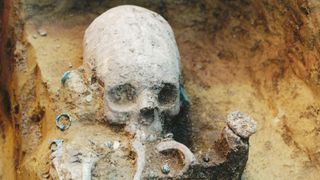
Deformed 'alien' skulls offer clues about life during the Roman Empire’s collapse
By Mindy Weisberger last updated
By studying artificially deformed skulls from a graveyard dating to more than 1,000 years ago, archaeologists are piecing together clues about an ancient community's culture.

Why is chocolate bad for dogs?
By Remy Melina, Mindy Weisberger last updated
Is it really that bad to give a dog a bite of a chocolate bar? Live Science investigates just how much chocolate is lethal to dogs.
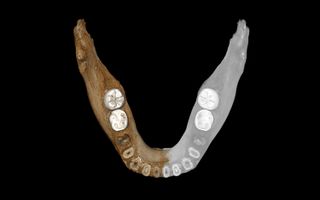
Found: First Tibetan Evidence of Neanderthal Cousins, the Denisovans
By Mindy Weisberger last updated
This is the first evidence of Denisovans living on the Tibetan Plateau.
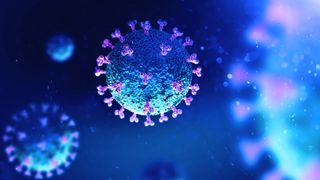
Loss of smell could be a symptom of COVID-19
By Mindy Weisberger last updated
Doctors are advising adding loss of smell to the list of symptoms for COVID-19.

NASA is counting down to the 'wet dress rehearsal' for its 'Mega Moon Rocket'
By Mindy Weisberger last updated
Critical prelaunch tests for the Artemis I moon mission, known as a "wet dress rehearsal," are scheduled to begin on April 1 and continue through April 4.

NASA's Artemis moon rocket just rode a 'supertank' to the launch pad
By Mindy Weisberger last updated
Inch by inch, NASA's Artemis I spacecraft and rocket have finally chugged all the way to the launch pad. The mission's "wet dress rehearsal" will take place on April 1.

Stacked 'Mega Moon rocket' is ready to roll, NASA says
By Mindy Weisberger last updated
Lunar mission Artemis I is about to roll closer to getting a launch date, after the mega rocket and spacecraft roll to the launchpad for tests.

Ready for Artemis I's moon rocket rollout? Here's how to watch.
By Mindy Weisberger last updated
A slow and steady journey lies ahead.

Enter the mysterious ancient Egyptian tomb of 'the Doctor' in this new VR experience
By Mindy Weisberger last updated
An ancient Egyptian tomb, sarcophagus and funerary artifacts could soon be accessible through virtual reality.
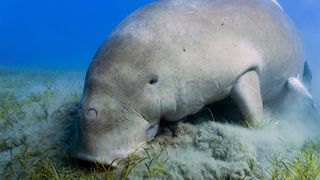
Tubby 'mermaids' vanished from Chinese waters 2 decades ago, now declared extinct
By Mindy Weisberger published
Dugongs, or sea cows, which are thought to have inspired tales of mythical mermaids, haven't been seen in Chinese waters since 2000.
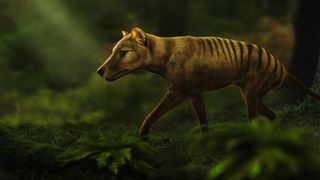
Could extinct Tasmanian tigers be brought back from the dead?
By Mindy Weisberger published
Thylacines, or Tasmanian tigers, have been extinct for nearly 100 years. But scientists say gene-editing technology could bring back this lost species.
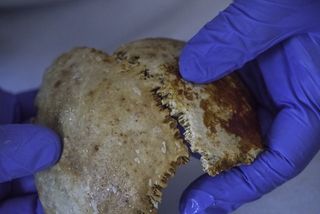
Ancient Skeleton Found on Famed Antikythera Shipwreck
By Mindy Weisberger last updated
A well-preserved 2,000-year-old skeleton could provide the first DNA evidence recovered from an ancient shipwreck.

Aztec Temple in Mexico City Contains the Remains of Sacrificed Children
By Mindy Weisberger last updated
An ancient temple and ceremonial ball court dedicated to the Aztec wind god Ehécatl have been identified at a site in what is now a modern section of Mexico City.

'Spirit mirror' used by 16th-century occultist John Dee came from the Aztec Empire
By Mindy Weisberger last updated
Mathematician and astrologer John Dee, a confidant of England's Queen Elizabeth I, was also an avid occultist and allegedly used this obsidian mirror to talk to spirits.
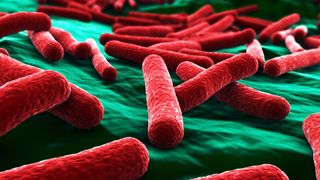
How a Man's Fecal Transplant Turned Fatal
By Mindy Weisberger last updated
The patient developed a fatal infection from antibiotic-resistant E. coli bacteria.

Inside Story Behind Mesmerizing Sky Glow Named 'Steve' Revealed in New Documentary
By Mindy Weisberger last updated
The story behind an oddball sky glow endearingly named "Steve" is revealed in a new documentary. Here's why the light show captivated aurora chasers.
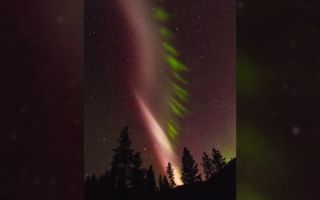
Mystery of Weird Sky-Glow Named 'STEVE' Finally Solved
By Mindy Weisberger last updated
Enigmatic STEVE is somewhat like an aurora...and somewhat different.
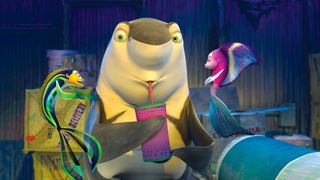
Best shark movies of all time, ranked
By Ian Stokes last updated
We're gonna need a bigger boat as we hunt down the best shark movies of all time, according to our team.
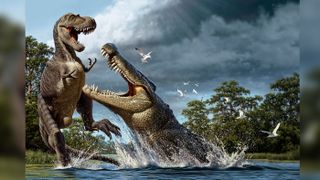
Cretaceous 'terror crocodile' crushed dinosaurs with banana-size teeth
By Mindy Weisberger last updated
New analysis of the ancient crocodylian Deinosuchus confirms that this apex predator had jaws and teeth that were powerful enough to subdue massive dinosaur prey.
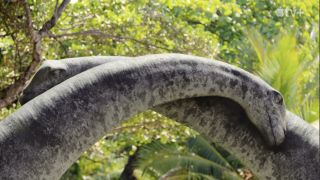
Cretaceous dinosaurs come to life in stunning footage from 'Prehistoric Planet'
By Ailsa Harvey, Mindy Weisberger last updated
'Prehistoric Planet,' a five-part documentary series, transports viewers into the mesmerizing world of the Cretaceous period.

13th-Century Death Pit Reveals Murdered Family in the 'City Drowned in Blood'
By Mindy Weisberger last updated
DNA evidence from a 13th-century Mongol massacre revealed a tragic glimpse at a family of victims spanning three generations.
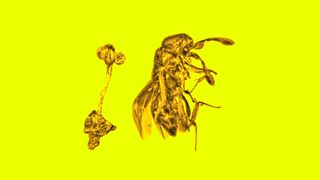
Amber tomb of 'dancing' wasp and delicate flower also hides a gruesome secret
By Mindy Weisberger published
About 30 million years ago, resin hardened around a flower and a parasitic wasp, preserving clues to their relationship in an ancient ecosystem.
Get the world’s most fascinating discoveries delivered straight to your inbox.


